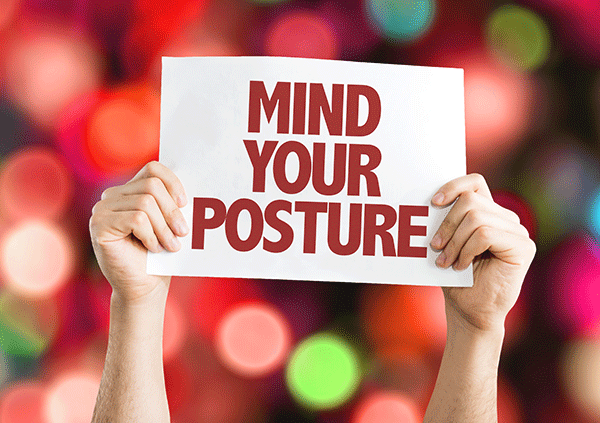by Sarah Halfpenny
Maintaining good posture is crucial for overall health and confidence. With age, the tendency to slouch or hunch may increase, but it’s never too late to make positive changes by following these five tips …
-
Posture perfect
Going through life with a perpetual slouch can compress your internal organs, making it challenging for your lungs and intestines to perform effectively. Over time, this can lead to digestive issues and difficulties with proper breathing. Imagine a wall behind you and follow these tips: keep your head high, shoulders back and down, chin parallel to the ground, ears aligned with your shoulders, knees straight, and tummy tucked. With this posture, it’ll feel like your head is being pulled by a string towards the sky. You’ll not only feel better but also project a more confident and slimmer appearance.
-
Drive right
While reclining in the driver’s seat might feel comfortable, it’s not kind to your posture. Opt for a more upright position during your drive. Keep your knees slightly bent, ideally at hip level or slightly higher and enhance the support by placing a pillow or rolled-up towel behind you. Avoid a ‘death grip’ on the steering wheel, and keep your hands at the 9 and 3 o’clock positions, which reduces tension in your shoulders.
-
Smartphone neck saver
If you spend a lot of time on your smartphone, you’ll want to avoid the dreaded ‘text neck’ and safeguard your spine. Constantly tilting your head down to read and write messages can put a considerable strain on your spine over time. Instead, try raising your phone up to eye level, and move your eyes rather than your head for a better view. This small adjustment can help you maintain a healthier and more comfortable posture, especially in this digital day and age.
-
Sleep smart
Even during snooze time, it’s crucial to maintain good posture. Avoid soft, saggy mattresses and opt for a firmer one that supports your spine’s natural alignment. If you’re a side sleeper, remember to bend your knees slightly but avoid hugging them in too tightly. Ensure your pillow keeps your head level with your spine. For those who sleep on their backs, it’s time to swap that thick pillow for a smaller one placed under your neck. These adjustments will help you get the most out of your rest and keep your spine well-aligned.
-
Sensible shoe choices
High heels are stylish yet often uncomfortable shoes that tilt your body forward, causing your spine to curve unnaturally. This places increased pressure on the lower back and affects the alignment of your hips, knees, and ankles. Over time, this can lead to chronic back pain, muscle tension, and even joint issues. Consider alternatives like flats, or shoes with a modest heel, as well as regular stretching and strengthening exercises for the feet and legs. This will strike a balance between fashion and comfort while prioritising your long-term posture health.




